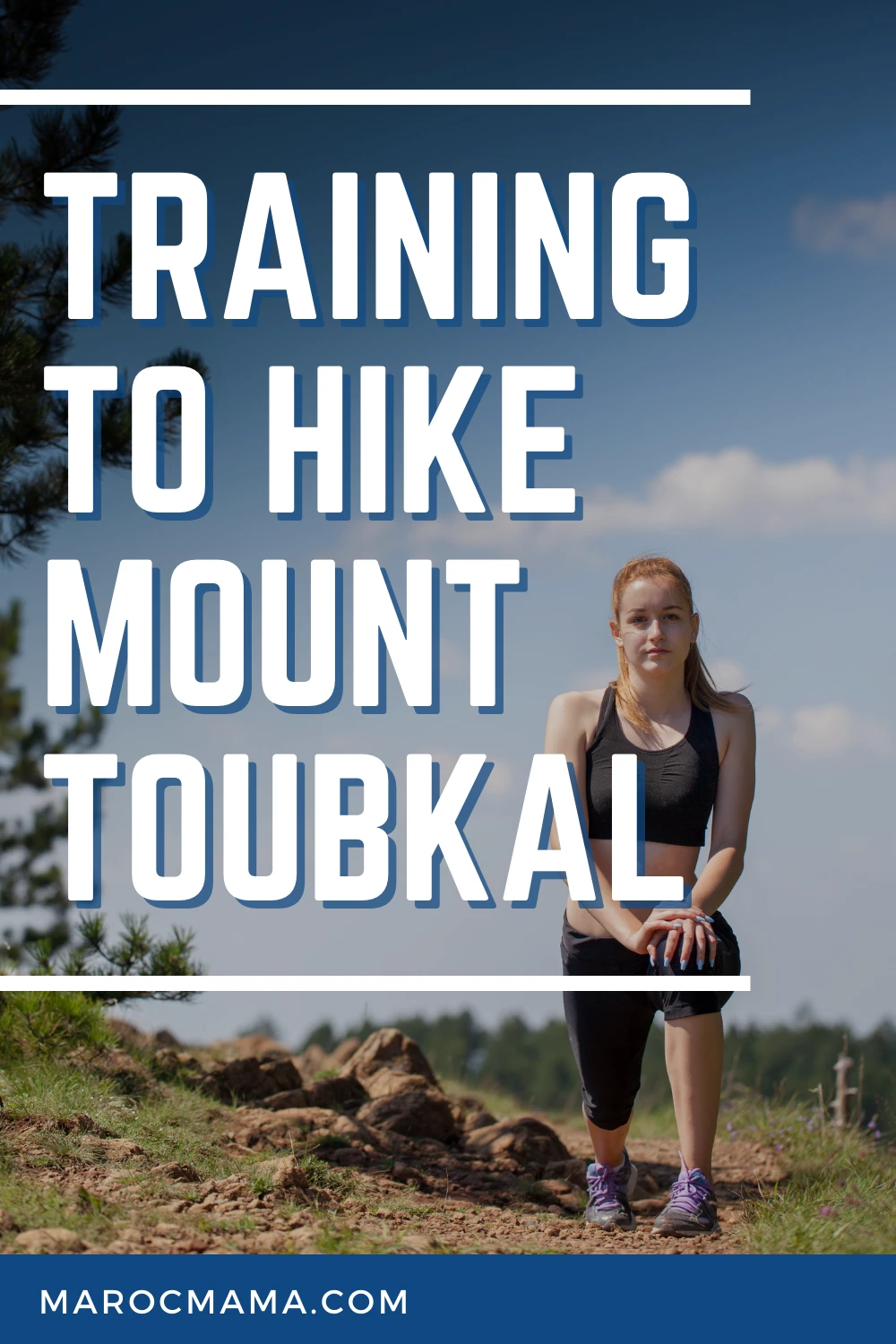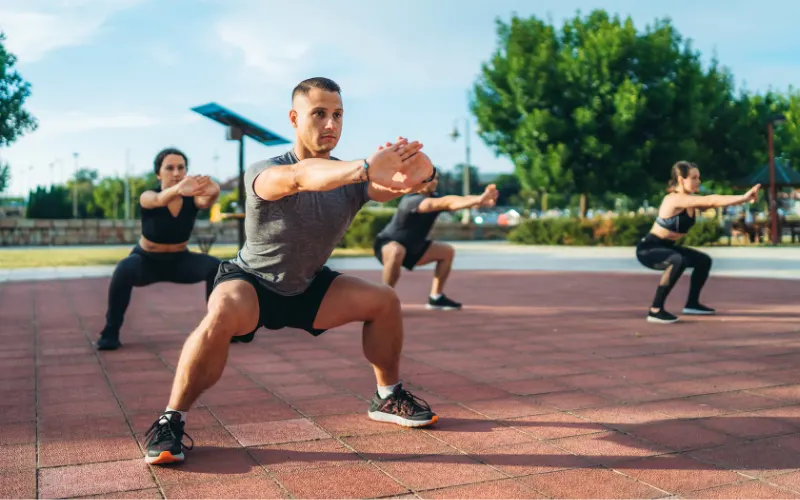Mt. Toubkal is Morocco’s tallest peak and typically tends to be a minimum 2-day trek to summit the beautiful mountain. Although hiking Mt. Toubkal can be done by someone with just average fitness and in a reasonably healthy condition, it is best to prepare for your journey to the top.
Following are some tips and considerations to help prepare for your adventure hiking Mt. Toubkal. Remember, just about anybody can do this mountain summit with a little planning. This article will help guide you along the way.

Things To Consider When Hiking Mt. Toubkal
Elevation
Mt. Toubkal is at an elevation of 4,167 meters (13,671 feet). This is definitely something to consider If you have difficulty breathing due to asthma or another respiratory issue. The air has less oxygen at a higher elevation and can make breathing difficult for even the average person.
Make sure you pace yourself and go slowly if needed as you want to do your best to prevent altitude sickness. You can help train for higher elevation activities, which we will go over in a bit.
Weather
Morocco can get quite warm depending on the time of year. But, if you plan on hiking Mt. Toubkal, you need to remember that it can get quite chilly as you ascend and at night. You may well go through dramatic changes in temperature during your trek.
I recommend bringing lightweight layers that can easily be added together for the cooler higher elevations or at night. Then you can stuff them in your pack if it is too warm or you start to sweat.
Terrain
The terrain hiking Mt. Toubkal can vary depending on the season and weather. Most hikers will experience a rocky, uneven trail that can be confusing at times. This is one of the reasons a guide is needed unless you are an experienced backpacker and can gain local authorization.
Be sure to wear a good pair of hiking shoes or boots, be careful of loose rocks and always watch your footing.
Training for Hiking Mt. Toubkal

One of the best ways to train for climbing a high altitude mountain is by climbing other not so high altitude mountains. Getting your mind, muscles, and lungs used to exerting energy with less oxygen is some of the best training you can do to prepare yourself.
If possible, find some local hikes that venture up to over 3-5 thousand feet in elevation. If you do not have access to high elevation hiking in your area there are other ways to help prepare yourself.
First and foremost hiking is just putting one foot in front of the other, usually with some ascending and descending in elevation, most likely with some weight on your back. So, practicing that is key to getting your body ready.
Throw on a backpack, even if you just fill it with water bottles and clothes to add weight, and then walk on the treadmill or head to the park for some walking.
If you have new hiking shoes, make sure you break them in well before the hike up Mt. Toubkal. Go walking and hiking wearing your new footwear and with weight on your back.
Practice walking on uneven surfaces and over obstacles with a pack on your back and you will be less likely to fall to slippage and injury on the trail.
You do not need big muscles or a six-pack to hike a mountain. Lung capacity and muscle endurance are what you need. The stair climber or a treadmill at a high angle at the gym should be your friends. If you do not have access to a gym, find some stairs and go up and down with your pack on.
For those who are unable to train in a higher elevation, there are elevation training masks you can purchase from your local outdoor store or on Amazon. These masks restrict the amount of oxygen that comes into your body to help prepare you for exercising in higher, thinner air environments. I would consult your doctor before using these though.
I would also recommend adding some core strength into your training regime as core strength is a huge part of backpacking as it pertains to balance, injury prevention, and weight distribution while hiking with a pack.
Although Mt. Toubkal is not Mt. Everest, it is considered a high elevation summit which is much more pleasurable if you are prepared to take on the feat.
As long as you are in decent physical shape, you should not have a problem, but why would you want to suffer through this amazing experience when you can take a few steps to prepare your body and enjoy it that much more?
Here is an easy to follow exercise regime to help prepare for hiking Mt. Toubkal:
Week 1 (2-3 times during the week)
- 1 hour walking with a pack (treadmill or trail)
- 100 free squats (can be done in sets of 25 if needed)
- 1 Minute Low plank (You can also do this in intervals)
Week 2 (2-3 times during the week)
- 1 hour elevated walking with a pack (treadmill or trail)
- 150 free squats (can be done in sets of 30 if needed)
- 1 Minute Low Plank (You can do half at a time if needed)
- 3 x sets of 30 seconds of mountain climbers
Week 3 (2-3 times during the week)
- 1 hour of elevated walking with a pack (treadmill or trail)
- 20 minutes of stair climbing at a slow pace
- 200 free squats (can be done in sets of 50 if needed)
- 1.5 minute Low Plank (You can do half at a time if needed)
- 3 x sets of 45 seconds of mountain climbers
Week 4 (2-3 times during the week)
- 1 hour of elevated walking with a pack (treadmill or trail)
- 30 minutes of stair climbing with a pack at a slow pace
- 250 free squats (can be done in sets to exhaustion)
- 2-minute plank (You can do half at a time if needed)
- 3 x sets of 1 minute of mountain climbers
Extra tip:
You can find your cardio range using the following equation. 220 – Your age = Your maximum heart rate. For cardio benefits, you want to keep your heart rate between 55-85% of your maximum heart rate. If you find yourself going over 85%, slow it down and rest a bit. If you are under 55%, kick it up a notch!
This post was written with the help of Nathan Sado who is certified as a personal trainer, in sports nutrition and sports therapy. The above advice should not be considered medical advice and anyone considering this type of hike should consult with their doctor in advance for advice and precautions based on their own health conditions.